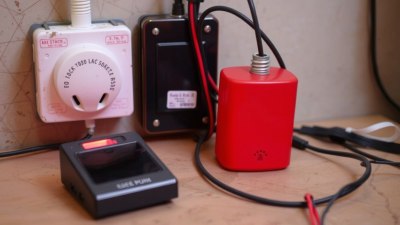Keeping Devices Safe from Power Surges in Nigeria
Protect your devices from power surges in Nigeria with effective tips and solutions.

In Nigeria, the issue of power surges is a widespread concern that affects many households and businesses. Frequent fluctuations in voltage can lead to significant damage to electronic devices and appliances. This article provides a comprehensive guide to understanding power surges, their causes, and practical measures to protect your devices effectively.
Understanding Power Surges
A power surge is defined as a sudden increase in voltage significantly above the standard level in a power line. This spike can happen due to various reasons, including lightning strikes, faulty wiring, power outages, and the sudden startup of high-powered appliances. In Nigeria, the instability of the power grid often exacerbates the frequency and severity of these voltage surges.
Causes of Power Surges in Nigeria
Several factors contribute to power surges in Nigeria:
- Lightning Strikes: One of the most natural causes of power surges. A lightning storm can generate surges powerful enough to damage or destroy electronic devices.
- Utility Company Issues: Faulty equipment, unexpected equipment failures, or maintenance work can lead to surges in the electrical grid.
- High-Powered Devices: Appliances like refrigerators, air conditioners, and washing machines can create voltage spikes when they start up or shut down.
- Poor Wiring: Outdated or poorly maintained electrical systems can increase the risk of surges.
- Interference from Other Devices: Turning on high-wattage devices can lead to brief spikes in power that can affect nearby electronics.
Impact of Power Surges
Power surges can lead to severe damage to electronic devices. Common consequences include:
- Device Malfunction: Surges can cause immediate or gradual damage to internal components, leading to functional issues.
- Data Loss: For computers and storage devices, power surges can lead to data corruption or complete loss of data.
- Increased Repair Costs: The need for repairs or replacements adds financial stress on families and businesses.
- Fire Hazards: Severe surges can heat wires and components, creating fire risks.
Prevention Methods
Protecting your devices from power surges in Nigeria requires a proactive approach. Here are practical tips you can implement:
1. Use Surge Protectors
Investing in quality surge protectors is one of the most effective measures you can take. It’s essential to choose a surge protector with a high joule rating, which indicates its capacity to absorb surges. Ensure that the surge protector is connected to every valuable electronic device.
2. Install Whole-House Surge Protection
A more comprehensive solution is to install a whole-house surge protector at your main electrical panel. This device protects all the electrical devices in your home from surges originating from both outside and inside sources.
3. Unplug Devices During Storms
When thunderstorms are forecasted, it’s advisable to unplug all non-essential electronics. This is especially true for expensive devices like televisions and computers that may not be protected adequately.
4. Regular Electrical Inspections
Having a qualified electrician conduct regular inspections of your home’s electrical system can identify potential risks. They can detect outdated wiring, faulty outlets, and other issues that could lead to surges.
5. Use Power Backup Systems
Consider investing in an Uninterruptible Power Supply (UPS) for computers and sensitive devices. UPS systems provide backup power and surge protection, keeping your devices safe during outages.
6. Opt for Quality Appliances
When purchasing new appliances, prefer models that include surge protection features. Many modern devices come with built-in protections against voltage spikes. Check for certifications that indicate their durability and safety.
7. Educate Your Family
Raising awareness about the risks of power surges among family members is crucial. Teach them the importance of unplugging electronics in adverse weather conditions and encourage the use of surge protectors.
8. Maintain Electrical Systems
Regular maintenance of your electrical systems ensures their integrity. Fixing frayed wires, correcting loose connections, and replacing outdated outlets can help prevent surges.
9. Monitor Energy Use
Being aware of how much energy your household uses can help you manage high-powered devices better. Avoid using multiple high-wattage appliances simultaneously to minimize strain on the electrical system.
10. Be Cautious with DIY Electrical Work
While DIY repairs may seem appealing, electrical work is best left to professionals. Incorrect installations can increase the risk of power surges. Always consult a qualified electrician for any significant electrical work.
Conclusion
Power surges are a significant concern in Nigeria, but with the right preventive measures, you can protect your valuable electronic devices. By combining the use of surge protectors, regular maintenance, and family education, you can minimize the risks associated with power surges, safeguarding your home and ensuring that your electronics last longer. As power stability continues to be a challenge in Nigeria, being proactive about protecting against power surges is an essential step for every household.











